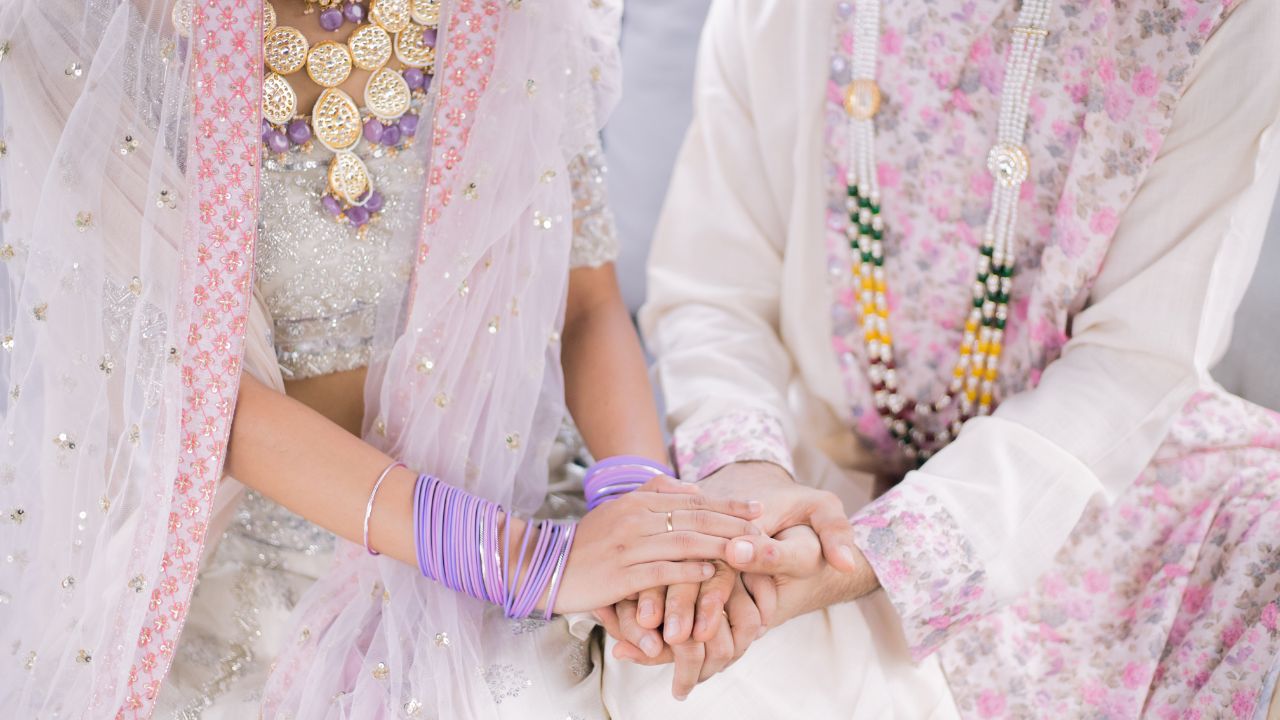Indian Muslim wedding

Indian Muslim weddings are a unique blend of Islamic and Indian traditions, reflecting the rich cultural diversity of India. Here are some of the key features of a traditional Indian Muslim wedding:
- Istikhara: This is a prayer that the bride and groom perform before the wedding, asking Allah for guidance and blessings.
- Engagement: This is the pre-wedding ceremony where the couple exchanges rings and formalizes the marriage agreement.
- Mehndi: This is the pre-wedding ceremony where the bride’s hands and feet are decorated with henna designs.
- Sanchaq: This is a pre-wedding ceremony where the groom’s family gifts clothes and jewelry to the bride.
- Nikah: This is the wedding ceremony itself, where the bride and groom exchange vows in front of witnesses and the marriage contract is signed. The ceremony is usually conducted by a religious leader, such as an Imam.
- Mehr: This is the dowry that the groom gives to the bride as part of the marriage contract. It is considered the bride’s right and is intended to provide her with financial security.
- Rukhsat: This is the moment when the bride says goodbye to her family and leaves with her husband to start their new life together.
- Walima: This is the wedding reception that takes place after the wedding ceremony. It is usually a large and festive celebration, with food, music, and dancing.
Indian Muslim weddings are known for their elegant and traditional clothing, with the bride wearing a hijab and a heavily embellished lehenga or sharara and the groom wearing a sherwani or a suit. The wedding ceremony itself is typically simple and straightforward, with a focus on the religious commitment between the bride and groom. The wedding reception is usually a more elaborate and festive event, with a range of traditional dishes and music. Indian Muslim weddings can be held in a mosque or other religious venue, as well as in a banquet hall or other suitable venue.
Specific Content Keywords : Nikah (marriage contract),Muslim wedding,Islamic traditions,Mehndi (henna application),Walima (wedding reception),Mahr (dowry or bridal gift),Halal food,Imam (religious officiant),Islamic attire (e.g., hijab, abaya, sherwani),Quranic verses recitation,Islamic prayers (e.g., Salatul Istikhara),Modesty and privacy (Purdah),Mehfil (religious gathering),Nikaahnama (marriage certificate),Wali (guardian of the bride),Mehr (bridal dowry),Dua (supplication),Islamic music (e.g., nasheeds),Dholki (traditional pre-wedding music celebration),Arranged marriage (in some cases),Procession (Baraat),Bride’s entrance (Rukhsati),Prayer before the wedding (Salatul Hajat),Islamic marriage counseling,Community and family involvement.

